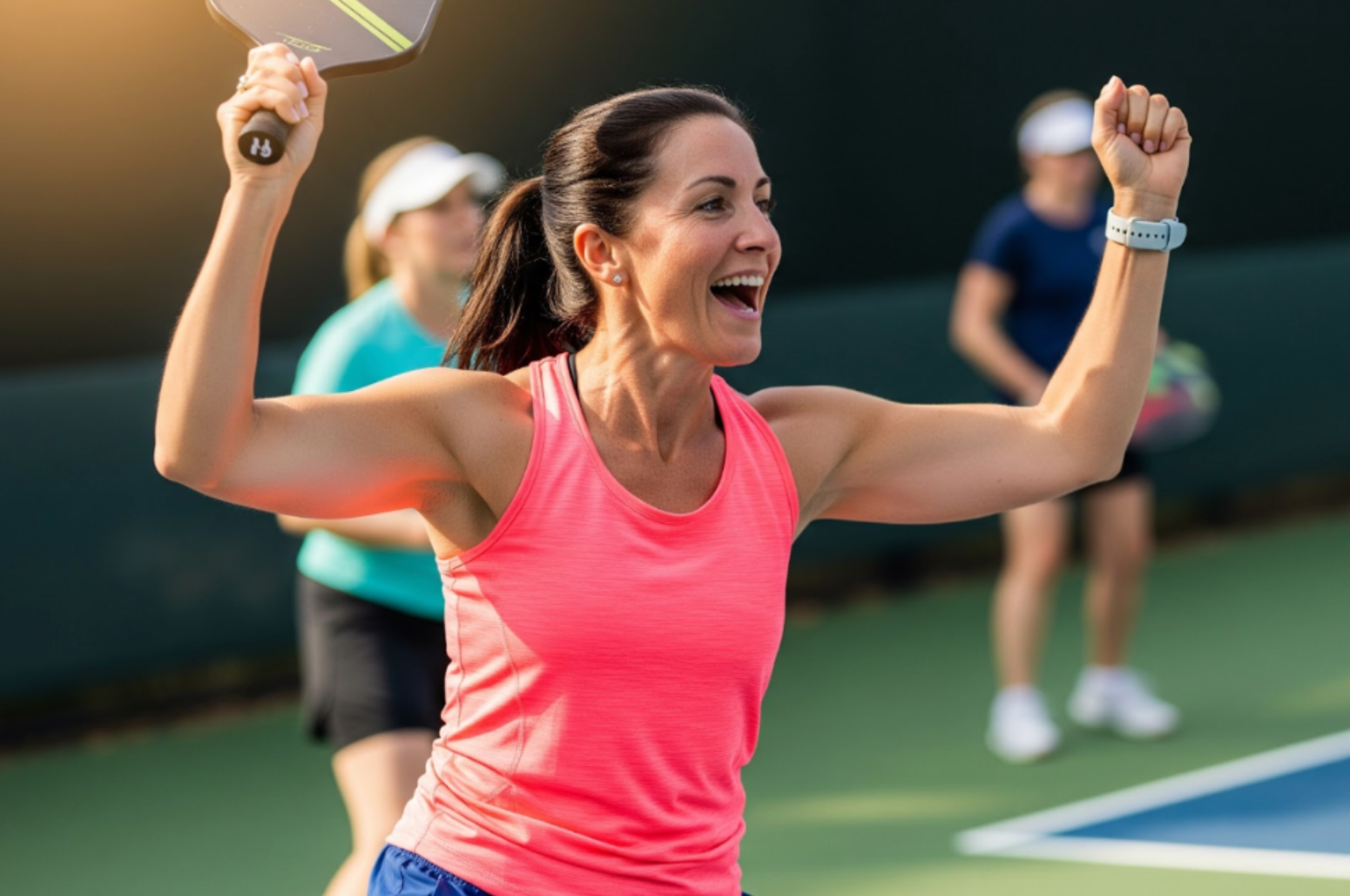Why Pickleball Is the Perfect Confidence Booster—According to Behavioral Science
Turns Out, Your Pickleball Obsession Is Great for Your Self-Esteem
Pickleball isn’t just fun—it’s a masterclass in building confidence, especially for adults who may not have picked up a new sport in decades (racquetball anyone?). And that’s where Vanessa Van Edwards’ work on confidence and interpersonal dynamics comes in.
Vanessa teaches that confidence is more than just mindset—it’s a collection of small, intentional behaviors that signal belief in yourself and invite others to respond positively. Think open body language, eye contact, an easy smile, and even the tone of your voice. Now step onto a pickleball court, you’re immediately placed in a situation where those exact cues come into play. My wife teases me because when we show up at the courts, I’m always saying “hi” and raising my hand for an open palm wave (one of Vanessa’s key tips to likeability).
Unlike many sports that can feel intimidating or cliquey, pickleball has a low barrier to entry. The paddle is light. The court is small. The vibe is casual. That means beginners can learn the game quickly and—this is key—start stacking small wins. According to Vanessa’s research, consistent, low-stakes wins are one of the fastest ways to build lasting confidence. You hit a few good shots. You call a score out loud. You introduce yourself to someone new. Each of those moments sends the same internal message: “I can do this.”
The social aspect amplifies it. Pickleball is built around doubles, which means you’re always engaging with others—whether you're partnering up or switching courts. For someone trying to build or rebuild confidence later in life, that consistent, casual interaction is incredibly powerful. You’re not just playing a game—you’re practicing the soft skills that make people feel comfortable and seen. Vanessa calls this “social fluency,” and it’s often more important than raw charisma when it comes to forming lasting connections.
And here’s the final kicker: pickleball players tend to cheer each other on. The community skews positive, and compliments flow freely. That affirmation creates what Vanessa describes as a “confidence feedback loop,” where positive reinforcement from others strengthens your internal self-image, making you even more confident the next time you step on court.
So while it might look like just a paddle and a wiffle ball, pickleball is actually a subtle, joyful workshop in personal growth. You leave the court feeling not just healthier—but more like yourself.
And that’s real power.

